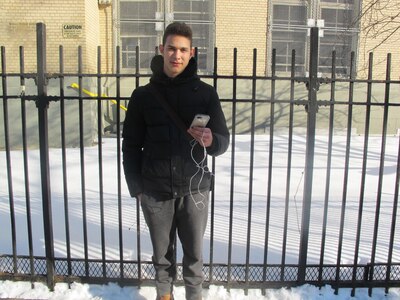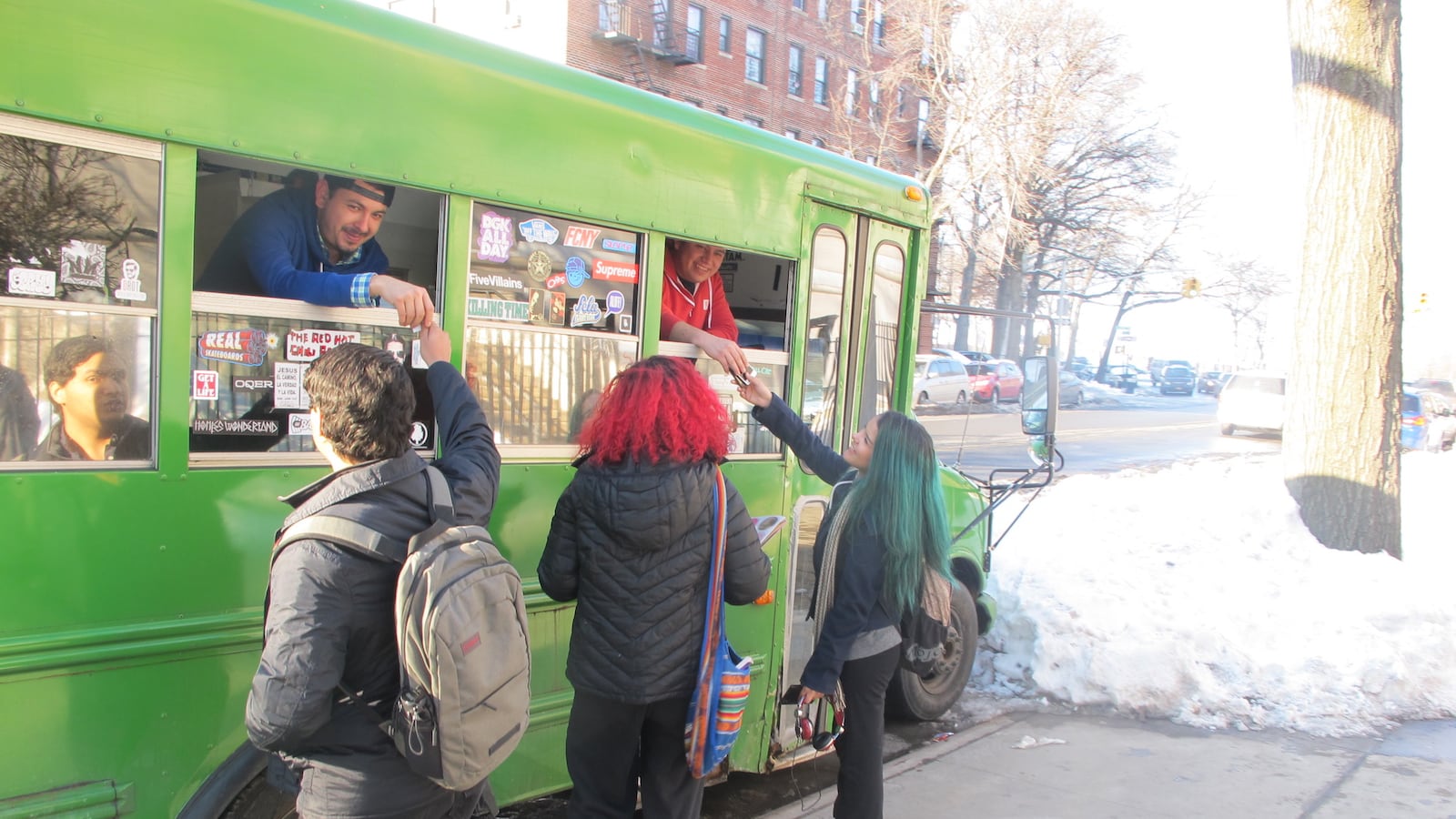At the Walton Education Complex in the Bronx, the green truck known for holding onto student cell phones still reigns supreme — for now.
As the ban on student cell phones in school buildings lifted Monday, a number of schools with metal detectors offered their students free cell-phone storage for the first time. But students at the five schools that share the Walton campus said they would be waiting a while to see how the new system worked before handing over their prized iPhones or Androids.
“I thought we would put the green truck out of business, but we’re not,” Celia Cruz Bronx High School of Music Principal Jerrod Mabry said.
Not yet, at least. Mabry said he was enthusiastic about the end of the ban, which he described as a chance to start conversations about cyberbullying and how to use cell phones as research tools. Still, he was surprised that only one in four of his students handed in the contract they needed to sign in order to store their phones for free by Monday.
“In the school, they are talking about they’re not responsible for what happens to our phones. At least with the trucks, we have some security,” explained Michael Pimentel, a 14-year-old freshman at Celia Cruz who handed his phone over to the truck on Monday. “I’ve never seen any of my friends lose any of their phones off the truck.
The Walton campus is one place where the city’s longtime cell-phone ban had an outsize impact. Because the schools require students to pass through metal detectors before entering, students have never had the option to simply stash their phones in their backpacks, as many students have for years. Instead, students have turned over their phones to the truck waiting outside for a $1 fee.

The city’s new policy was designed to save the students from spending money just to have their phones accessible before and after school and to make students more accessible to parents. Schools were told to develop their own policies by Monday, and the five schools in Walton opted to have students place their phones in Ziploc bags that are collected after passing through the metal detectors in the morning and can be picked up at the end of their day. (Other schools will allow their students to keep their phones on them, out of sight.)
The first day of the new policy went smoother than Mabry expected. He had worried that the extra step of collecting phones would lengthen lines at the metal detectors, and that a midyear policy change would be even more disruptive. But there was no increase in late students or extra-long lines on Monday morning, he said.
Anthony Polanco, a 16-year-old junior at Celia Cruz, said he leaves his phone with his parents. The policy, he said, could benefit other students at his school who turn to an outside vendor to store their phones.
“It’s fair, even though you can’t bring it in the school,” he said of the new policy. “At least you’re going to save the dollar.”


